Kitchener's Army
In a letter sent home to his mother in Edinburgh just one week before the declaration of war in August 1914, William Castle of the 4th Bn. Royal Scots wrote:
.jpg)
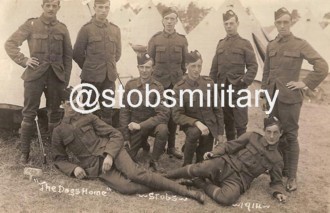
Men of the 4th Bn. Royal Scots (Queen's Edinburgh Rifles) at summer camp at Stobs in July 1914
27. 7. 14.
D.Coy. 4th Batt.
Royal Scots
Stobs, Hawick
Dear Mother,
Just a few lines to let you know how I am getting on, well I have been kept pretty busy, we have not had much time to ourselves, so I will try let you know what I have been doing, to cut a long story short we have had a terrible weeks work. The weather has kept up wonderful, so that is the main thing. The first Monday I was down at Hawick, I was down at Hawick, I was in the baths, and when I started to swim they all stood looking as if they had never seen swimming like it, when I was coming away they asked me if I could get a team out of our battalion to play them at water polo, so we have got a team together to play them on Wednesday. I am going to get my photograph taken by myself before the week is finished, I hope you were pleased with the one I sent you, I have not got much more to say at present, will tell you all about it when I come home, wish I were home, I think I will make this my last year, the grub we are getting is not very patent, I think that will be all, please send me another letter before I come home as I am wearing to know how you are all getting along, tell father and the girls I was asking for them, with best love from your loving son
Willie
x x x x x x x x
will tell you the result of the polo match when I come home
x x x x x x x x
Willie Castle was killed at Gallipoli on the 28th June, 1915, aged 20 years. He has no known grave and is commemorated on the Helles Memorial to the Missing. My thanks to Rosemary Steed, his Great-niece, for the information above)
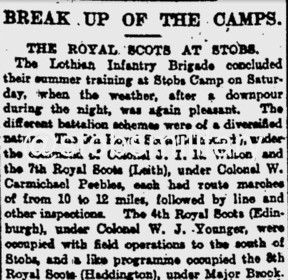
Report from the Glasgow Herald of 3rd August, 1914. The day before war was declared
In a postcard written from Stobs in the first days of August, 1914, to his family, one of the farming Barries of Berryfell, just up the road from Stobs Camp wrote:
"Detained here tonight. Expect you will see the reason in tomorrows papers - outlook at the moment very serious"
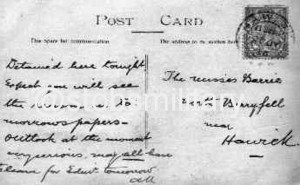
The outlook was indeed very serious with Britain and her Empire declaring war on Germany on 4th August, 1914.
With Stobs being one of the premier military camps in Britain, towards the end of 1914 Kitchener's army of raw recruits and partially trained Territorials began arriving by rail from all over the country to begin their transition from civilian to military life.
And such was the scale of the manpower involved that Hawick also had to provide billets for thousands of men as the camp could not cope. Within a few weeks the number of troops stationed in Hawick totalled over 5,000 men, comprising mainly of Highland regiments including a brigade of the Black Watch. To accommodate this number, large buildings such as church and public halls, warehouses and factories such as MacTaggart's wool store behind St.George's Church and at the Albert Mills, were requisitioned. The Ayrshire Yeomanry, because of their horses, had to camp under canvas in the Wilton Lodge park. The 6th Battalion Black Watch recruited from Perthshire found themselves billeted in the West Port U.F.Church Hall and in the Pentecostal Mission Hall in Beaconsfield Terrace
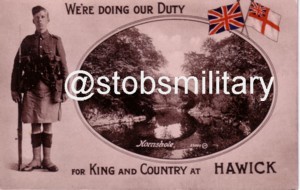
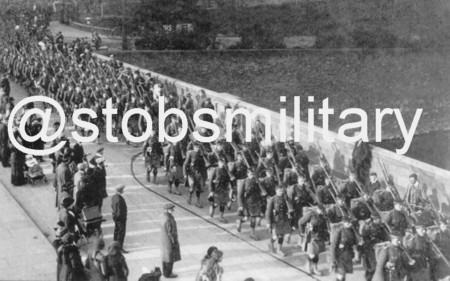
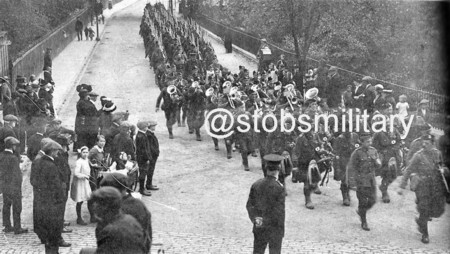
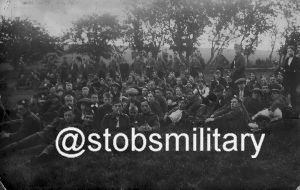
For many local traders the soldiers were a God send and a temptation. John Smith who ran a small confectionery shop at 46 High Street was charged with selling 3 packets of Woodbine cigarettes to a soldier during the weekly Tuesday half-day holiday, contrary to the Shops Act. In his defence Mr Smith said that he had a call from a soldier who had travelled all night to Stobs only to find that there was nothing there to smoke.
Mr Smith was admonished after saying that he had allowed his admiration for the soldiers serving their country to outrun his discretion.
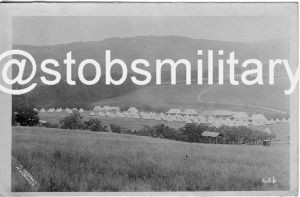
By July, 1915, an exclusion order had to be issued regarding visitors who were coming
to visit the troops on their Sunday rest day. The order stated :
'that owing to the number of women, young girls and men who frequent the camp on Sundays,
the General Officer Commanding has given orders that no civilians will be allowed in or near the camp without a
special pass signed by the Officer Commanding the units or Brigade staff.'
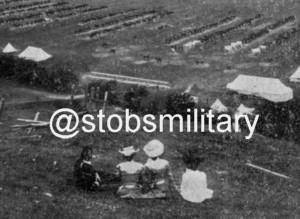
Three weeks later, John Durkin, a labourer from 9 Melgund Place, Hawick, was charged with:
'having on the Sunday, 1st August, entered the lines of the 14th Royal Scots at Stobs for
the purpose of idling, loitering or behaving in a disorderly manner and continuing within the said lines after
being warned off by an officer.'
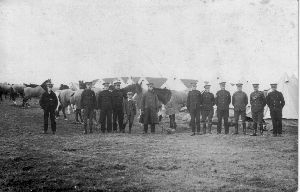
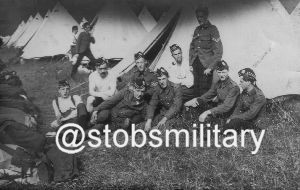
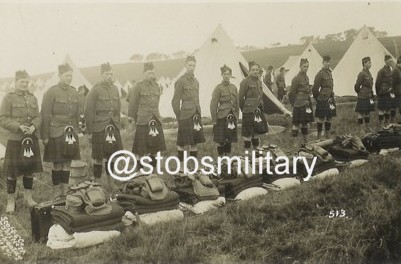
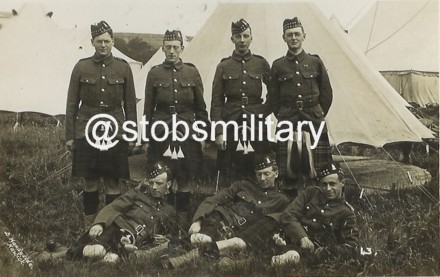
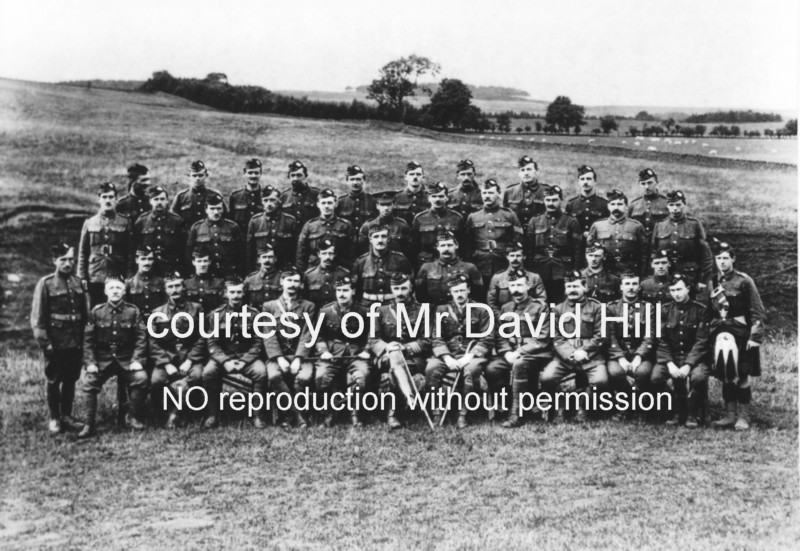
My thanks to David Hill for the above photograph which shows the W.O's. and N.C.O's
of 7th (Res.) Battalion, The Royal Scots at Stobs in August 1916. (note the Vertish in the background)


